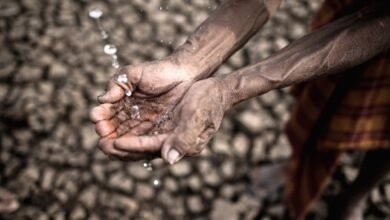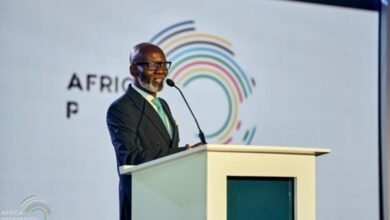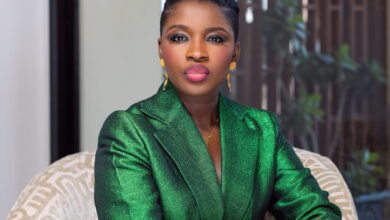In vogue, the term « metaverse » refers to the next frontier of the digital universe. A virtual universe, rich in opportunities, and that must now embrace the African continent, argues the specialist in creative industries Mohamed Zoghlami.
By Mohamed Zoghlami *
Used for anything and everything like many trendy, hype concepts, it becomes difficult to find one’s way around. For now, the word « metaverse » refers to a vision of what the future could be; a digital world where you could lead a parallel life without leaving home thanks to your avatar. But for technophiles, geeks and global tech giants, the metaverse is the natural evolution of the Internet, driven by the convergence of several technologies, advances in AI, 5G networks, 3D, augmented reality, virtual reality, blockchain and NFT (non-fungible tokens). But also because the Covid-19 pandemic will have digitalized many practices. As a result, some people are reappropriating the notion of metaverse to describe decentralized virtual universe projects, but which do not correspond to what a metaverse is supposed to be, literally a « meta universe »; a universe of universes.
In this metaverse, could we eventually see an African universe or universes emerge?
That is the question, because if we were to paraphrase the Ivorian President Alassane Ouattara, « if Africa [after having] missed the train of the industrial revolution, […] did not miss that of the digital revolution », it certainly risks missing the next revolution, the industry 4.0 and the immersive economy. In fact, it is the 4th industrial revolution, the immersive economy and its challenges – innovations – linked to the metaverse, which can propel Africa towards development. For this, we must not miss this train. However, today, I have the feeling that we are very far from it. Artificial intelligence, 3D, virtual reality, and augmented reality are the backbone of all this technological evolution. It is unfortunate, however, that there is very little expertise on a continental scale that can take on this new challenge.
The metaverse will be the place where all the technological rivalries and power struggles will be played out in the years to come. We can already see this with the multiple acquisitions, projects, applications that are announced daily. Google has bought 22 companies, Microsoft 56, and Amazon 29. In volume, these transactions represent respectively $22 billion, $25.7 billion and $15.7 billion. That’s not much compared to Microsoft’s latest acquisition of Activision Blizzard King Group for $68.7 billion. « This acquisition by Xbox will accelerate the growth of Microsoft’s mobile, PC, console and cloud gaming business and provide building blocks for the metaverse, » announced Microsoft CEO Satya Nadella. That says it all.
The metaverse is at the crossroads of several emerging and existing digital technologies, and Africa is already dependent, a consumer. It can’t impose anything on the technologies, the infrastructures. And, we do not have large groups as elsewhere on other continents likely to be locomotives in AI, VR, AR or States likely to drive strategies and action plans on the long term. AI is driven by start-ups and associations in Africa, and sometimes by university courses. 3D, VR and AR are taught in very few schools and institutions, and there are few start-ups using these technologies in Africa. Yet these digital tools are essential for the metaverse.
What will happen to the African metaverse? Who will drive it, the States? I doubt it very much, as they are preoccupied with economic and social challenges, health, food, infrastructure, energy, environment, education…The metaverse will not be their primary concern. Will Africa have to be content with being a consumer or will it have to become a full-fledged player? Who will be able to invest in powerful computing machines, in research and development, in the production of applications, solutions and African content? The private sector? I also doubt it because it will expect immediate profitability and visibility on the investment.
Depending on who creates this African metaverse, the question of its acceptance and its model will also arise. Under these conditions, should we resign ourselves to not taking part in this competition, which is already shaping the world of tomorrow? Should we accept this new form of cyber colonization without reacting?
Africa and the metaverse
Africa has the youngest population. It is in this youth that the leaders of tomorrow are to be found.
This youth is uninhibited, digital native, connected to the world, and is and will be a force of proposal in a 21st century to be reinvented. This African youth has proven its reactivity, creativity, and agility to face the challenges of Covid-19, thanks to digital technology. It has largely demonstrated its capacity for innovation and resilience, giving meaning and purpose to the Africa of tomorrow.
However, it will take more than a technophile, inventive youth to meet the challenge of the African metaverse. For many challenges weigh on the continent and constitute a real obstacle to its emergence. Although the number of broadband connections on the continent passed the 400 million mark in 2018, the penetration rate of 3G and 4G only reaches 25% on average today, representing a « brake » on development.
And let’s face it. Today, the digital economy is dominated by the United States and China. These two groups account for nearly 90% of the digital world. In comparison, Africa represents only 1.3% and Europe about 3.7%. So what role will Africa play? It’s hard to predict at the moment when you see how little the African digital ecosystem is involved.
Mark Zuckerberg, to advertise his metaverse, has in any case called upon Khaby Lame, a Senegalese star of social networks, king of « keeping it simple », to raise awareness of his new digital ambitions among Internet users. What could be simpler than calling on the man who has made simplicity a concept to explain the metaverse?

The solution will certainly come from universities, educational institutions, associations, civil society, and start-ups. This community by collaborating together at the African level will allow, research and development, experimentation, content production to build this project.
Now a metaverse feeds on technology and content … and Africa is full of content. Africa is a cultural mosaic, with 54 countries and over 3,000 different languages and cultures. The continent’s socio-cultural landscape is incomparably rich and varied. The continent is experiencing an exceptional cultural revolution through fashion, cinema, visual arts, cultural sites, media, design, video games, animation, comics, entertainment, music, literature. The talent and creativity is there. Africa is the future, it has talent, but it is not making enough use of it.
What if Africa dared to change its image? African youth want to tell their Africa, to spread a new storytelling, to get out of stereotypes and negative representation. They are looking for a narrative that is interested in Africa, they want an African universe. Black superheroes in the image of the African continent with its own cultural codes.
Creativity, matrix of the African metaverse
The pandemic has given African countries the opportunity to innovate and rebuild their economies through digital technology. But they must not only repair it, but also recreate it, around the digital transformation. So why not move into the digital cultural creative industries and the metaverse?
Africa harbors a community of creators, who seek to influence consumers by embracing innovation and technology, bringing many advances especially in key areas related to AI, blockchain, crypto-currencies and especially around NFTs (non-fungible tokens – a datum linked to the Ethereum blockchain and used as a digital asset to record the unique ownership of goods such as images, videos, music and other collectibles)
Creators also have a head start when it comes to experimenting and innovating to connect with their audiences. African designers will be key in the adoption of the metaverse; they are the trailblazers, the pioneers, mastering how to create, communicate on social networks and announce a fashion launch.

Creators, one of the key elements of the metaverse
The metaverse challenges African creators to be innovative. Their creativities and skills will be the engine of these immersive experiences. They will have to invest in this technological revolution, take risks, be actors of change on a global scale, cooperate, collaborate, create communities to develop an African universe or universes.
These African creatives are already working together to solve problems, but the metaverse is a whole other challenge. They have an opportunity to develop new revenue-generating experiences through this new virtual universe thanks to NFTs and cryptocurrencies. Especially since the Covid-19 pandemic has had strong economic impacts on the continent’s artists with the cancellation of biennials, fairs and exhibitions, causing heavy social and financial consequences in return.
Digital art will play a major role in the development of African immersive virtual worlds as augmented and virtual reality technology matures. African crypto artists will be able to promote their work on the blockchain and immortalize their cultural influence on the metaverse. Nigerian artist Oyindamola Oyekemi Oyewumi, sold her first NFT last year for several thousand dollars. And all over Africa, art creators are taking advantage of this new virtual market to give visibility to their productions. Uyi Amokaro launched WeAreMasters, a digital marketplace specializing in collectible cryptocurrencies and African NFTs. Ferdy ‘Ladi Adimefe, the founder of Magic Carpet Studios, is also coaching African artists to ride the trend.
In March, Osinachi sold $75,000 worth of NFT art in 10 days, before selling Becoming Sochukwuma – a painting of a black dancer wrapped in a tutu swirling on a computer screen – for $80,000 on the crypto-art market in April. Osinachi thus became the most highly-rated African crypto-artist, inspiring a hundred digital artists in Nigeria, including Niyi Okeowo, whose « Afrofuturist » works combine photography, 3D, graphics and sound. In fact, Nigeria holds the pole position of crypto-art in Africa, and is the third largest user of virtual currencies in the world after the United States and Russia. According to a study by Statista, in 2020, more than 400 million dollars will be exchanged in cryptocurrencies in the country.

The phenomenon is not limited to Nigeria: all over Africa, artists are getting into NFTs, finding a much better outlet for their productions. Some, like Senegalese artist Pape Moussa Kane aka Pamplumus, sell their work on the Opensea platform. Kenyan filmmaker and photographer Rich Allela has auctioned off the continent’s first NFT-powered art collection. Tunisian artist Idriss B., known for his 3D sculptures, has launched his own NFT collection, titled « Polyverse Art ». It includes 11,000 digital animal sculptures. In 2021, several African artists have taken the plunge and produced digital works on several platforms such as Opensea, Foundation, Rarible, Super Rare, Mintable, Wax,Muda, AjeVerse and many others.

Invictus Capital, through the Invictus NFT Lab, has unveiled its first NFT collection, Out of Africa Collection, which aims to launch many contemporary digital artists into the global market. Africarare, South Africa’s first VR metaverse housing a digital space with African roots, launched and sold its first art collection in October 2021. Artist Norman Catherine’s first NFT collection of 52 digital pieces brought in US$53,000.
These passionate artists create communities such as Africa NFT Community, Black NFT Art, Network of African NFT Artists, Afro Future DAO, Kenyan NFT Club, Nigeria NFT Community, Zulu Inu…to raise awareness, educate, inform…These communities interact, serve as a space for promotion, interconnection and collaboration. They share ideas, resources, co-creations and challenges. They host online and hybrid events focused on storytelling, promoting art and supporting emerging artists. These communities embody that African sense of belonging and uniqueness leading to cooperation and sharing. So why not transpose them into the virtual, into the metaverse with the values so dear to our ancestors – respect, integrity, humility, sharing, sense of community, generosity, benevolence, trust, determination, commitment, efficiency – as opposed to a consumerist vision.
NFTs can help create new markets and in turn create more digital businesses and jobs in Africa. Brands can use them to bring more value to their customers, especially in the fashion, art and entertainment industries. In June 2021, the Museum of Modern Africa Art Gallery& Lifestyle (MOMAA) used NFTs to launch an exhibition of modern African art. Thrill Digital in Nigeria is a startup that is developing a virtual fashion showcase and has launched Astra, a game where players can win real fashion items. The game has its own crypto token.

Beyond that, NFTs provide a unique opportunity for African artists and creators to find a fair place in the art world at large, the possibility of a radically new art market emerging, a creative economy that finally serves African artists. Artists can sell digital assets directly to buyers, thus eliminating intermediaries.
However, with the rise of the digital art market, the environmental impact of NFTs poses a real problem in Africa with its energy cost, but it is not the only constraint. Cryptocurrencies are frowned upon by the governments of some of the major African markets. As a result, these governments are already limiting active participation in the metaverse. So how can we be part of building this metaverse without ignoring the obstacles?
Cultural heritage as a first step to an African metaverse
What if we were still to evolve in a virtual world where the imaginary, the stories we are offered are not part of our vision of the world, of our values, of what our civilization stands for? In the metaverse, digital content – video games, animation, comics, VR & AR, cultural tourism – represents a window of choice to open Africa to the world, with its myths, its heritage, its history. It is a fundamental element of soft power to change the negative vision, the perception of the rest of the world towards the continent.
To develop, Africa must appropriate this 3D Internet, this metaverse to promote and defend its culture, to create a digital storytelling identity, to master its narrative at a time of global war on culture and media. Africa is full of thousands of archaeological sites, its heritage is unknown, and immersive content will democratize access to its wealth, the creation of interactive museums will open new tourist frontiers. Through our own applications, we promote our countries.

That’s the question that Meta and Africa No Filter (ANF), an organization dedicated to changing the narrative about Africa, have begun to answer by announcing a partnership to launch the « Africa of the Future: Telling Stories, Building Worlds » program, which aims to stimulate the use of virtual reality in storytelling in Africa. « Virtual reality has the potential to take storytelling to another level. In this new metaverse, the audience doesn’t just watch a story unfold, they live it, » explains Moky Makura, executive director of Africa No Filter. This is an opportunity for African content creators to push the boundaries of their creativity and innovation.
EON Reality, the world leader in knowledge and skills transfer based on augmented and virtual reality for industry and education, has partnered with Ethiopia, a nation rich in culture and history, to create a metaverse knowledge center for students, teachers and entrepreneurs. The NGO Africa 2.0 has partnered with Computecoin to overcome the computing barriers faced by developers and end users on the continent by providing affordable computing power and producing African content.
If the innovations of the future are to be showcased, creative potential demonstrated, and positive stories told about Africa, this African metaverse will need to be fueled by the creativity of millions of graphic designers, engineers, researchers, artists, and gamers on the continent. And this sense of community and shared wealth will make this African Metaverse unique. For this to happen, training in these creative digital professions will be essential.
From this point of view, we should learn from the example of 3D Netinfo (www.3dnetinfo.com)-an African center specializing in training for creative coding and 3D computer graphics production-which is building a network of training courses on the continent for the trades necessary for the metaverse, supporting in particular the emergence of African developers with the AfricGameDev program (200 young people from 10 countries trained) and soon the African Metaverse Challenge, supported by Epic Games, Autodesk and NVidia.
*Mohamed Zoghlami is an International consultant in Strategy & Development – Specialist in creative industries in Africa – Co-founder of Afric’Up and Africa in Colors






